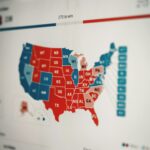Qualities of the Best Policy Analysts
Last week, I shared a summary of what policy analysts do.
Summarizing what it takes to be a policy analyst is a bit trickier. Besides having an interest in policy and supporting free-market principles, there are not many similarities among policy analysts. Regardless, here are a few common qualities that help policy analysts excel.
Budgets: The ability to think critically about policy is important. Good policy analysis requires deciphering government budgets and financial statements, which differ in significant ways from similar documents in the private sector.
Journals: Once you have deciphered where the dollars come from and where they go, you still need to understand what effect they have. Because governments often measure programs by inputs instead of outputs, a policy analyst has to be able to understand specialist literature in legal or academic journals.
Spreadsheets: In most policy areas, the analyst will also need to be proficient in interpreting data sources and working with them in spreadsheets to perform calculations and create new tables or graphs. Visual representation of data is becoming a very important explanatory tool, in print and especially online.
Writing: The most common way to communicate ideas is with words. Whether that is 140 characters on Twitter, a wall post on Facebook, a status update on LinkedIn, an op-ed, a research paper, or a book, the policy analyst needs to be able to write. Writing with style, humor, and precision are helpful, but it is important to know the audience and the format. Humor does not always translate, nor is it always appropriate. Translating complex topics and months of research into something others can understand takes effort and talent. Some of us rely more on effort, but it is essential to have a working knowledge of the English language as a starting point.
Speaking: Public speaking generally requires less precision with the rules of English than writing does. Speaking does, however, require more comfort with the subject, more knowledge of the audience, and greater ability to translate thoughts into words quickly.
Flexibility: Legislation can gain momentum overnight. Unexpected events can change the dynamics of a debate. Even ideas that languished for a century and seemed dead can come back like another Freddie Krueger movie. Policy analysts have to be able to switch gears, adapt their priorities, and respond, especially during the legislative session.
Time Management: With so many changing demands on the policy analyst’s time, a valuable skill is the ability to manage one’s day without a lot of supervision. Know what is important. Know what can be delayed. Know how long it takes to write 250 words. Plan for the unexpected, and keep track of deadlines.
Political Sense: It is important to understand what will work politically. This does not mean the policy analyst will only write or recommend what is politically viable, but it is important to know which recommendations will not go far. Sometimes, allies can be found in unexpected places if a policy is phrased the right way at the right time. Other times, the best policy idea peddled in overly adversarial terms can alienate natural supporters. Public choice theory is a good foundation for developing political sense.
Humor: One way to defuse a bad situation or disarm critics is with humor. Laughter and smiles make people more willing to accept challenging ideas. It breaks down their defenses. As defenders of liberty and promoters of small government, policy analysts in the movement are going to experience more defeats than victories. A sense of humor will offset the some of the inherent disappointments.
Faith: The people who survived prisoner of war camps and other difficulties were not the wild-eyed optimists who expected to be released by Christmas, nor the pessimists who thought they would never get out. They were the ones who had faith that they would get out eventually. Freedom and liberty are hard work. Have faith that others treasure it enough to join you in that work.
Joe Coletti is a policy specialist at the State Policy Network and a leader of AF’s Raleigh chapter. This is an excerpt from the Institute for Humane Studies Policy Career Guide.




